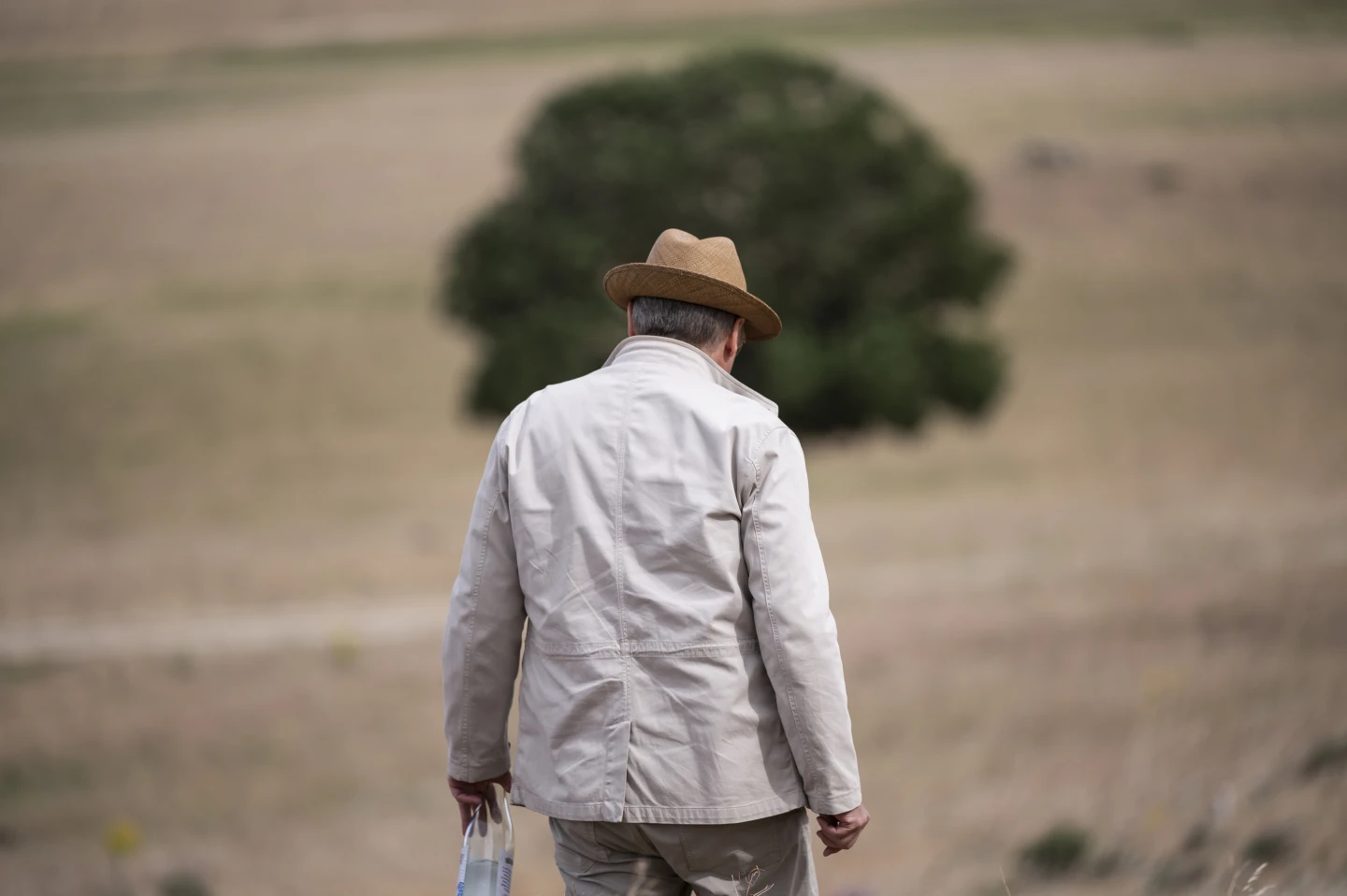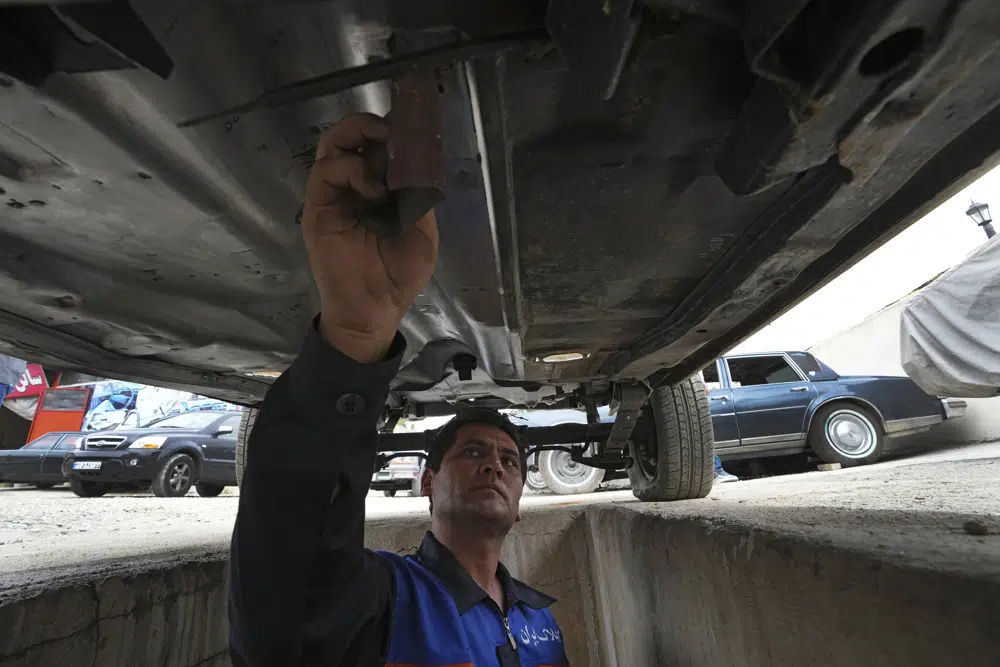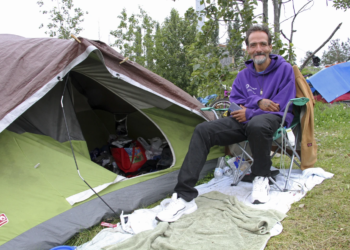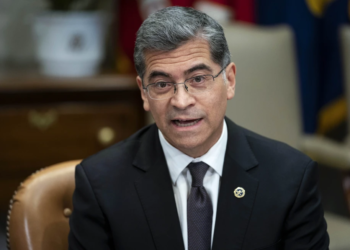HELENA, Mont. (AP) — Testifying on Tuesday, a teenage athlete who was part of a group of 16 young individuals taking Montana to court over climate change expressed the challenges he faces due to increased smoke from forest fires. Mica Kantor, who is now 15 years old, shared that he has been prescribed an inhaler by a doctor to alleviate breathing difficulties caused by the deteriorating air quality.
Mica’s concern for climate change dates back to when he was just 4 years old, when he dictated a letter to Sen. Jon Tester, D-Mont., as he was too young to write it himself. He described the growing obstacles he encounters in engaging in activities such as running or hiking with his family, while also highlighting how warmer conditions have shortened snowboarding seasons.
This testimony occurred on the second day of a groundbreaking trial, where the 16 young residents of Montana are asserting that the state’s failure to maintain a clean environment violates their constitutional rights. Their plea to the judge is to declare a state law, which prohibits agencies from considering the impact of greenhouse gas emissions when granting permits for fossil fuel development, as unconstitutional.
As the trial garners significant attention for potential legal precedents, state officials have been attempting to minimize Montana’s role in contributing to global warming.
During the proceedings, the plaintiffs’ attorneys presented the court with photographs of Mica actively participating in climate change protests held at his school, the local courthouse, and the state’s largest public utility. Mica explained that his intention was to raise awareness about climate change, emphasizing that the first crucial step is to make people think about the issue.
Mica expressed how the concerns surrounding climate change often make it difficult for him to sleep at night, hoping that the state will take progressive actions that inspire optimism for the future.
He also shared a poignant poem that he had written during a period of quarantine in the basement of his house when the rest of his family was affected by COVID-19, and the air quality outside due to smoke made it impossible to play. In his writing, he questioned why nobody seemed to be listening and whether they truly cared about the unfolding environmental crisis.
The state chose not to cross-examine Mica or Badge Busse, both 15 years old, during the trial. Furthermore, they did not pose any questions to the three young plaintiffs who had testified the previous day.
During his testimony on Tuesday, Badge shared how climate change has impacted his outdoor activities, including hunting, fishing, and downhill skiing. He recounted a distressing incident when a forest fire near his home prompted his family to prepare for evacuation, describing it as one of the most terrifying experiences of his life.
Badge’s mother gathered baby books while he collected some of his cherished belongings, all in readiness to leave behind their only familiar abode. Fortunately, they did not have to evacuate in the end.
Pediatrician Lori Byron, hailing from Crow Agency, took the stand as a witness and provided testimony regarding the physical and mental health repercussions of climate change on children. She highlighted that several of the plaintiffs suffer from asthma or other respiratory issues. Moreover, numerous plaintiffs expressed how the combination of heat and smoke often leads to feelings of depression and anxiety.
During the trial, Dr. Lori Byron, a pediatrician, emphasized that children are more susceptible to the effects of high temperatures, fires, smoke, and extreme weather events due to their developing bodies and brains. Additionally, children have a higher breathing rate compared to adults. Dr. Byron noted that even though it may be unhealthy for them to do so, child athletes tend to continue participating in activities despite the presence of smoke or excessive heat because of their competitive nature.
Earlier on the same day, retired professor Cathy Whitlock from Montana State University took the stand as a climate scientist. She provided testimony on the impact of climate change. According to Whitlock, if the current rate of fossil fuel burning persists, there will be an increase in the number of days with temperatures exceeding 90 degrees Fahrenheit (32 degrees Celsius). This will also lead to a rise in the occurrence of “fire weather days,” characterized by hot, dry, and windy conditions that facilitate the ignition and aggressive spread of wildfires. Furthermore, Whitlock stated that by 2050, the number of days when wildfire smoke renders the air unhealthy to breathe will also escalate.
In addition to the aforementioned effects, Whitlock highlighted that the number of days with temperatures below freezing will continue to decrease as a result of climate change.
Whitlock further testified that there has been an increase in precipitation during spring and fall seasons. In some cases, spring rains fall on snow, causing rapid melting and leading to instances of flooding, as observed in Yellowstone National Park and its surrounding area in the previous year. Whitlock emphasized that urgent action to reduce fossil fuel burning is crucial to avoid abrupt transitions between seasons. This is necessary to mitigate the impacts of events like flash droughts, which occurred in 2017 and resulted in a record-breaking fire season in Montana. The fires covered approximately 7,000 square miles (18,210 square kilometers) of land, leaving smoke lingering in a western Montana valley and causing crop losses totaling $2.6 billion.
Whitlock acknowledged that there are some positive aspects to the changing climate, such as an extended growing season and the ability to cultivate crops like cantaloupe in northwestern Montana where it was previously uncommon. However, she emphasized that the negative consequences, such as extreme weather events and increasing droughts, outweigh the positives.
During the cross-examination, Thane Johnson, an attorney representing the state, questioned Whitlock about the significant impact of Montana completely halting its greenhouse gas emissions on the global climate. Whitlock reiterated multiple times that every ton of CO2 released into the atmosphere contributes to global warming. However, she clarified that she was not an expert and could not provide precise calculations on the specific effects.
Johnson also pointed out the lack of electric tractors for farmers and the absence of electric vehicle charging stations in rural Montana, which hinders residents’ ability to reduce their reliance on fossil fuels.






























